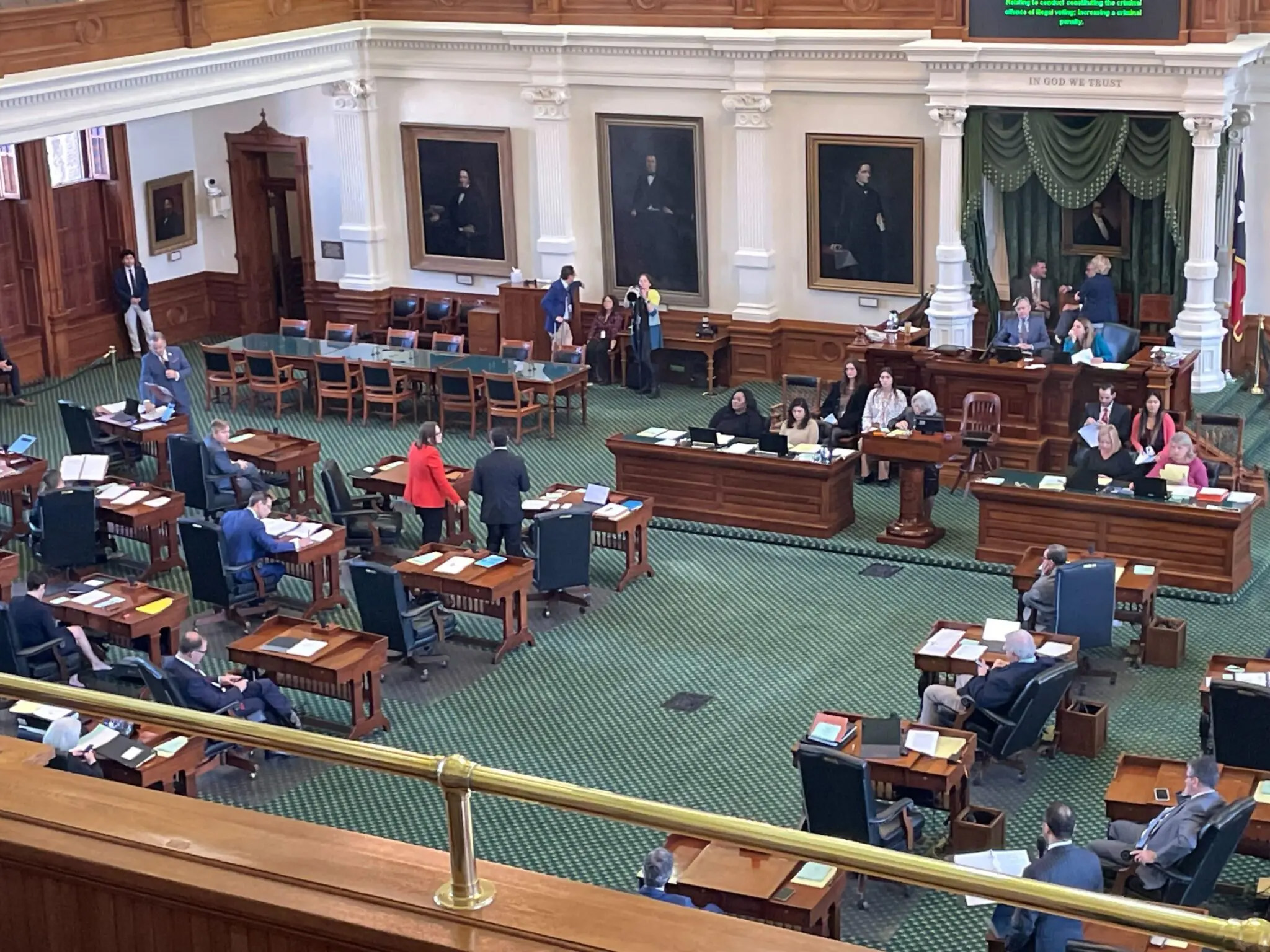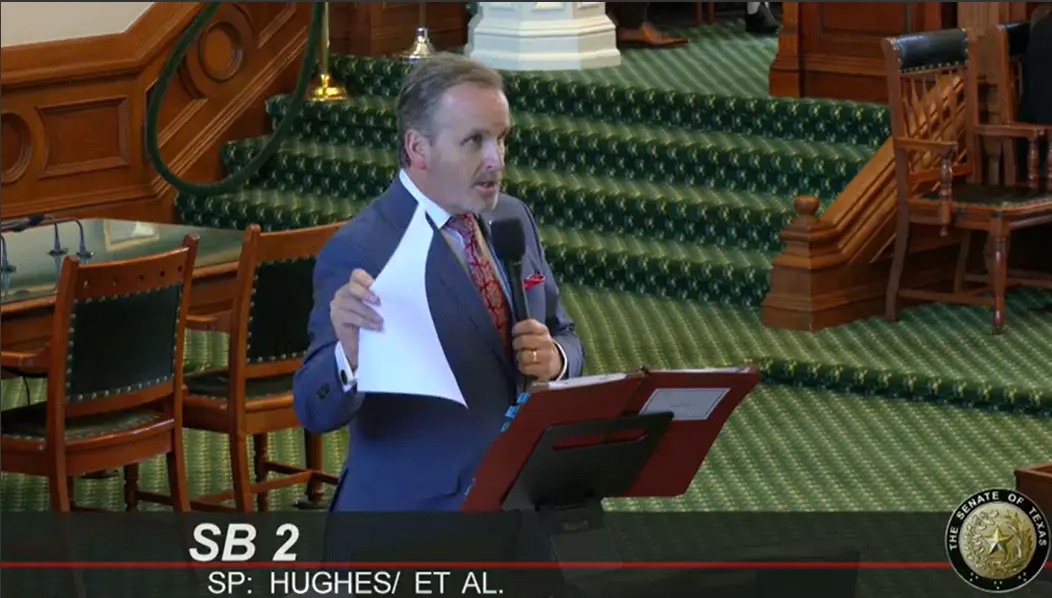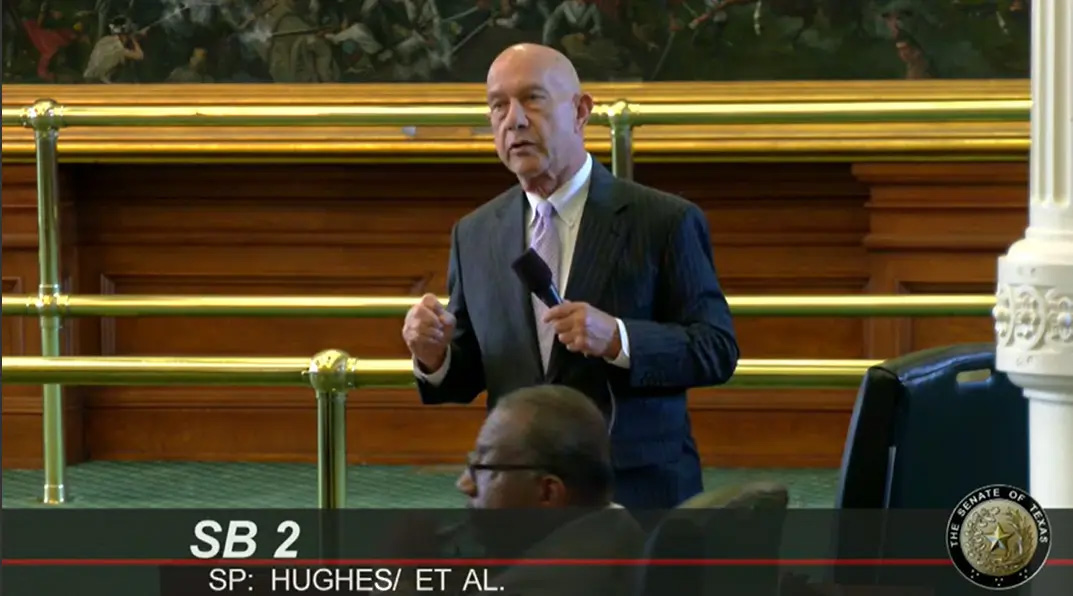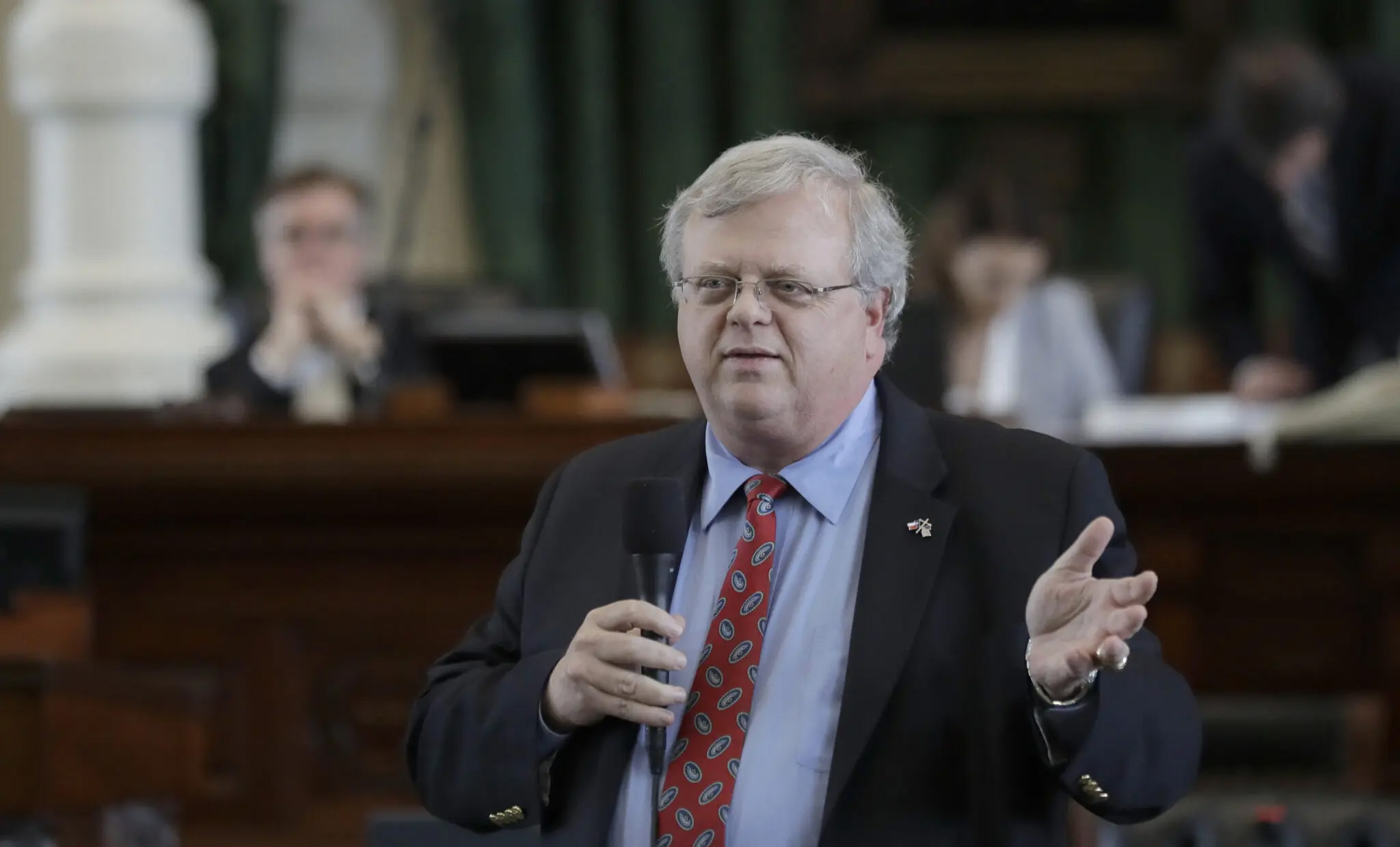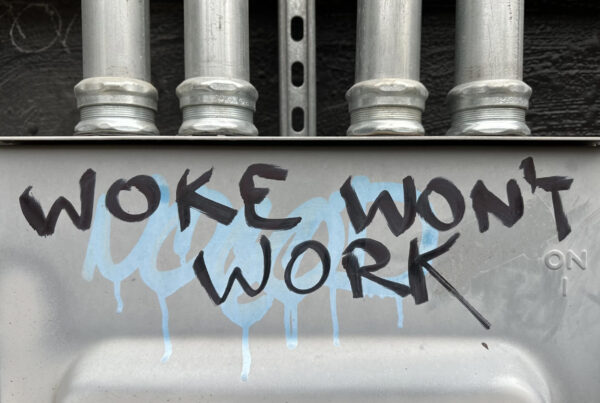Republican state lawmakers have filed a raft of bills aimed at combating alleged election fraud and making the officials who conduct elections more accountable to the voters. The major proposals could make it even tougher to vote in Texas than it already is.
The leading elections bill that passed the Texas Legislature in 2021 shut down a number of practices that made it easier to vote. But a last minute amendment to the bill in the House changed illegal voting from a felony to a misdemeanor. Lieutenant Governor Dan Patrick made reversing that change one of his top priorities for this session. Senator Bryan Hughes, R-Mineola, wrote the bill to do it, Senate Bill 2.


